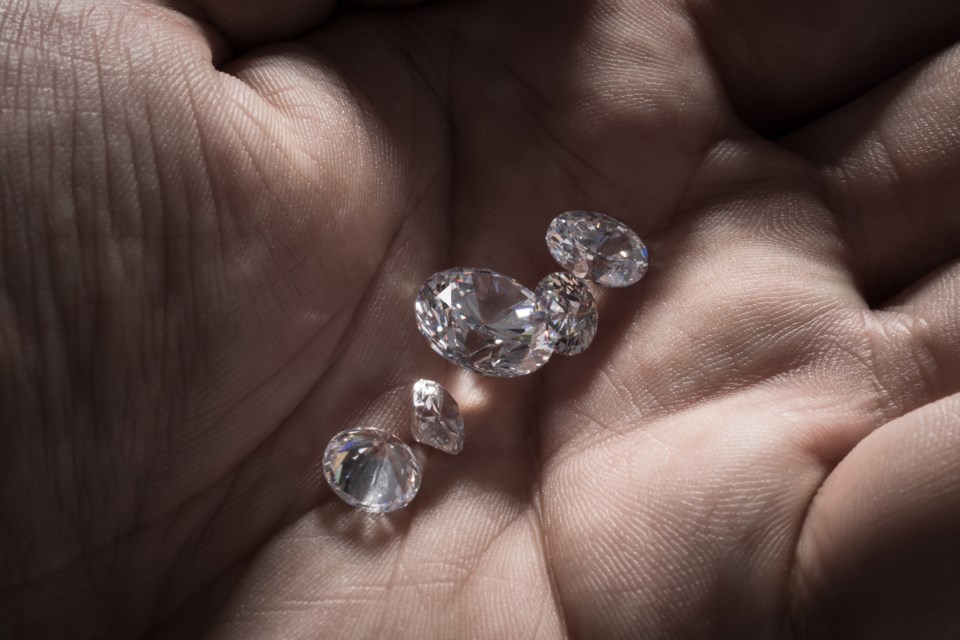Lucara Diamond (TSX: LUC; BSE: LUC) has reported lower production and sales figures during the March quarter as mine sequencing and persisting soft market conditions weighed on the bottom line, it said in a May 11 after-market release.
The Vancouver-based company’s cornerstone asset is the Karowe mine in Botswana. Since beginning commercial operations in 2012, it has become the only mine ever to yield two 1,000+ carat diamonds — the 1,758-carat Sewelô in 2019 and the 1,109-carat Lesedi La Rona in 2015, which sold for US$53 million. It also produced a 62.7-carat fancy pink diamond – the world’s largest.
For the three months ended March, the company’s revenue fell 37% year on year to US$42.8 million, which president and CEO Eira Thomas ascribed to a planned change in product mix starting early this year, compounded by weaker diamond prices compared with a year ago.
Headline profit, which is adjusted to remove non-recurring items, fell 57.5% to US$15.3 million due to lower sales.
Thomas says global economic concerns and geopolitical uncertainty, including Russia’s ongoing aggression in Ukraine, continue to play out in a persistently weak market, particularly in North America.
However, the executive, which, together with mining luminaries Lucas Lundin and Catherine McLeod-Seltzer, founded the company in 2007, says prices are beginning to show signs of steadying as China continues to open post-Covid. She expects the trend to continue through year-end and contribute to generally strong long-term market fundamentals as demand is expected to outstrip future supply.
Interestingly, Thomas notes that sales of laboratory-grown diamonds increased during the three months. Intense competition and technological improvements continue to drive prices of lab-grown stones down.
“This further differentiates this market segment from the natural diamond market and highlights the unique nature and inherent rarity of natural diamonds,” Thomas says.
Karowe diamonds are sold through three separate and distinct sales channels, including the HB Trading sales agreement which caters for Lucara’s +10.8 carat production sold at prices based on the estimated polished outcome of each diamond, the Clara digital sales platform which uses computing algorithms to match rough diamond production to specific polished manufacturing demand on a per-stone basis, and through quarterly tenders. All three platforms generated fewer sales this quarter.
BMO Capital Markets mining analyst Raj Ray says the company’s production and earnings came in below estimates, but its balance sheet looks stable for the moment.
In a note to clients, he notes that Lucara has cash on hand of US$31.2 million compared with US$26.4 million at 2022 year-end. The company also has US$60 million available to it under its US$170-million underground project finance facility and a further US$27 million available liquidity on the US$50 million working capital facility.
Thomas says the company has started an update to the schedule and budget for the Karowe Underground expansion project, which cost increased to US$547 million from US$514 million as of Aug. 2022.
Lateral development of the Karowe underground development. Credit: Lucara Diamond.
BMO’s Ray says he expects an update on the Karowe underground capital budget by June, which should provide additional visibility on any potential funding gap.
During the quarter, 64% of the carats processed were recovered from the Centre and North Lobes, and 36% were recovered from South Lobe material.
In terms of the expansion project, Lucara says the key focus this past quarter was on the central ventilation and production shaft sinking, as well as ongoing grouting work. The expansion project is now fully powered, following installing 11kV transmission and 132kV power lines enabling grid-supplied electricity.
Total expansion costs this year will amount to US$105 million, including further sinking and grouting of shafts, procurement of underground equipment, and construction of the bulk air cooler system.
Lucara shares, last trading in Toronto at 50¢, are flirting with the 12-month low and are framed against a 75% loss over the past five years. It has a market capitalization of $231.7 million.



